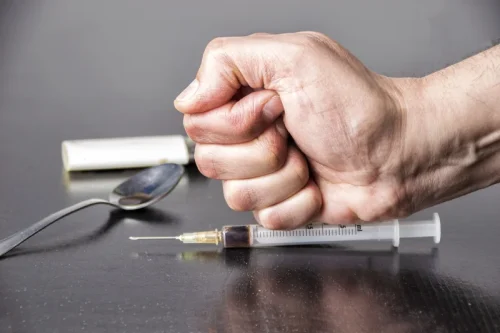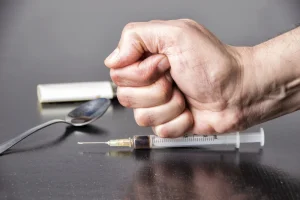
Alcohol can mask stress in the short term, but it does not treat the underlying causes of psychological distress and mental health conditions. In the long run, it can actually make them worse, and there is a strong link between excessive alcohol consumption and depression. What starts as a 30-day experiment often evolves into something greater. As you experience the physical, mental, and emotional benefits, you may find yourself reassessing your relationship with alcohol altogether. For some, it’s the beginning of a longer journey toward a healthier lifestyle.
Emotional Stability and Reduced Anxiety
Dasgupta said the best people to avoid alcohol always are those under 21 years old, and not just for legal reasons. Data from 2013 published in the American Journal of Public Healthestimated that about 3.5% of cancer deaths in the United States were alcohol-related. On the other hand, if you drink in moderation, alcohol doesn’t affect LDL and instead increases good cholesterol (HDL).
- At first, Gomez—who has since founded the online community No Booze Babes—encountered plenty of questions about why she wasn't drinking, which rattled her.
- Exercise improves mood and cognitive function by stimulating dopamine production, counteracting the neurochemical imbalances caused by alcohol dependence.
- They will also provide emotional support and therapy to help individuals address the root causes of their addiction and manage any withdrawal symptoms that may arise.
- Hydration and gut health also play a key role, as alcohol damages the digestive system, impairing nutrient absorption.
- So, SELF connected with experts to find out what actually happens to your body when you go sober.
- People who have ditched booze describe being hammered with questions about why they’re staying sober, treated like they’re sucking all the fun out of the room, or, if they’re women, inevitably asked if they’re pregnant.
Social Self

A 2016 British study of about 850 men and women who volunteered to abstain from alcohol during Dry January found that participants reported a range of benefits. "Better sleep" was cited by 62 percent, and 49 percent said they lost some weight. In the far corner, about a dozen women in a group are clearly enjoying themselves too, but they are not drinking alcohol. They're sipping handcrafted mocktails, with names like Baby's First Bourbon and Honey Dew Collins, featuring nonalcoholic distilled spirits.
- Motivational Interviewing (MI) enhances an individual’s commitment to sobriety by reinforcing personal motivation and strengthening the decision to change.
- Vowers says not drinking makes him feel more present — more grounded.
- In the Pre-Contemplation stage, individuals do not recognize their drinking as a problem and resist change despite adverse effects.
- Alcohol withdrawal can occur shortly after the last drink is consumed and typically peaks within hours after a period of heavy drinking.
- So, it’s not that sober living will give you a super-powered immune system—it’s just that it will get you back to your baseline, i.e. the efficient immune system you should have had before you started drinking.
- Confidence in maintaining long-term sobriety is fully developed, and the need for structured support systems significantly decreases.
Your sleep improves
Here, experts and sober influencers share their favorite go-to responses. There are plenty of cheaper (and sometimes free) ways you can spend a night with friends, and the change might be refreshing. Why not try organising a game of beach volleyball, or a sushi-making night, or a home movie marathon. Think outside the square and just watch the extra money pile up in your bank account. In group therapy, individuals can learn, grow together, and experience meaningful taking a break from alcohol support through psychoeducation, recreation, and community development.
This new minimally invasive heart procedure is already saving lives

Exercise improves mood and cognitive function by stimulating dopamine production, counteracting the neurochemical imbalances caused by alcohol dependence. Therapy and Counseling help individuals understand their triggers and develop coping strategies. Medications such as naltrexone, acamprosate, and disulfiram aid in reducing cravings and withdrawal symptoms. Support Groups and Peer Networks, including Alcoholics Anonymous (AA) and SMART Recovery, provide accountability and encouragement. Holistic Approaches, such as meditation, exercise, and nutrition-based recovery, strengthen overall well-being and mental resilience.

Will I lose weight if I stop drinking alcohol?
Dehydration can lead to dryness, fine lines, and dullness, while inflammation may trigger redness, puffiness, or breakouts. Overcome addiction with our family support system, and regain control of your life! Alcoholics Anonymous (AA) follows a 12-step program that emphasizes spiritual growth, self-reflection, and peer accountability. Participants work through structured steps to achieve and sustain sobriety, often with the guidance of a sponsor who has successfully maintained abstinence. Find a friend you can hang out with who doesn't feel the need to drink Twelve-step program to have fun. And if things get tough, getting help from a Gundersen provider is always an option.
- Meanwhile, others who drink heavily “might notice more pronounced physiologic effects, such as more mental clarity, better sleep, weight loss, and feeling the ‘detox’ sensation, in addition to achieving a set goal,” she noted.
- Taking a break from alcohol for 90 days offers a wide range of benefits, from improved sleep and mental clarity to better physical health and emotional stability.
- While drinking could help you fall asleep, it suppresses REM sleep, the restorative part of your sleep cycle, Dr. Leavey says.
- Yes, relapse is a normal part of alcohol recovery because addiction alters brain chemistry, making long-term sobriety a continuous process that requires behavioral reinforcement and coping strategies.
- So, depending on how much you typically drink on a daily basis, cutting that out might simply mean you’re taking in fewer calories.
Health News
Balancing his entrepreneurial acumen for streamlined growth with a genuine concern for the well-being of every individual, Meir is consistently immersed at every level, especially in the progress of client treatment. He staunchly believes in unlocking the inherent potential in each person, regardless of their starting point. Treatment for DTs typically includes inpatient hospitalization, detoxification, fluids and electrolytes, vitamins, nutrition support and medications such as benzodiazepines to manage symptoms. Own Your Limits is a Defense Department (DOD) education campaign, aligned to the Defense Health Agency, for the U.S. military.
However, if you’re banking on a month-long break from alcohol to help you lose weight, Kumar said it’s not your best bet. Excess alcohol consumption may cause weight gain, which means that cutting out alcohol could lead to weight loss for some people. Many people participate in “dry January” and take the month off from drinking alcohol to reset after the holiday season. More people are drinking less alcohol—and sometimes, their friends take that personally. People who have ditched booze describe being hammered with questions about why they’re staying sober, treated like they’re sucking all the fun out of the room, or, if they’re women, inevitably asked if they’re pregnant.
The chronic nature of alcohol dependence means that many individuals experience relapse triggers, such as stress, social pressure, or emotional instability, which leads to temporary setbacks. The Termination stage is the final phase of alcohol recovery, where individuals achieve full independence from alcohol dependence with minimal risk of relapse. This phase signifies that alcohol no longer poses a threat to the individual’s life. Confidence in maintaining long-term sobriety is fully developed, and the need for structured support systems significantly decreases. Nutrition plays a critical role in alcohol recovery by correcting deficiencies, restoring organ function, and improving overall physical and mental health. Chronic alcohol consumption depletes essential vitamins and minerals, leading to malnutrition, weakened immunity, and cognitive impairment.
Health Conditions
Add a dose of appreciation, wonder, and awe and the world will bless you back with outpours gratitude. The Maintenance stage lasts several years or even a lifetime, as long-term sobriety requires ongoing effort and vigilance. The Contemplation stage lasts from a few weeks to six months, depending on the individual’s willingness to commit to change. The Pre-Contemplation stage lasts weeks to several months, depending on personal circumstances and external influences.



